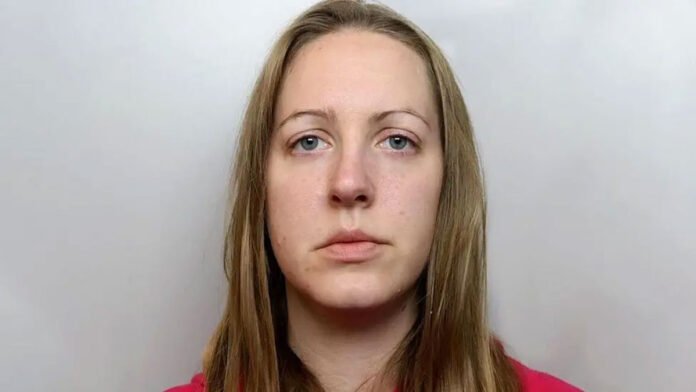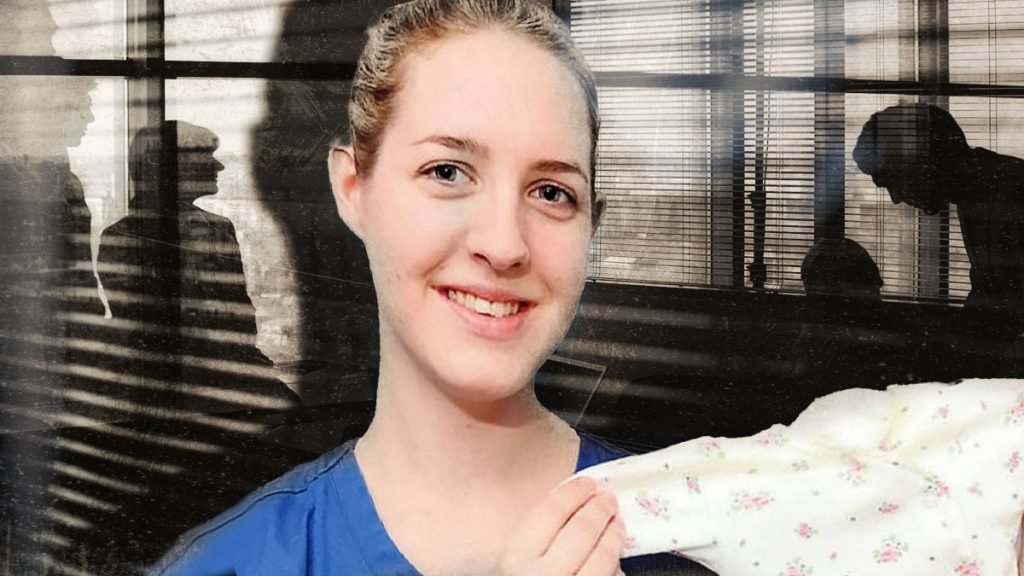
Three ex-bosses of Lucy Letby arrested on suspicion of gross negligence manslaughter
After years of focusing solely on Lucy Letby, the police have finally started asking the questions that should have been asked from day one: what did the hospital management know, when did they know it, and why didn’t they act?
On Monday, Cheshire Police arrested three senior figures from the Countess of Chester Hospital leadership team on suspicion of gross negligence manslaughter. These are the people who ran the institution where babies died between 2015 and 2016, the same people who continued drawing executive salaries while parents buried their children.
It’s taken this long for anyone in authority to consider that maybe, just maybe, the people actually running the hospital might bear some responsibility for what happened on their watch.
The Hierarchy of Accountability

Lucy Letby was convicted of murdering seven babies and attempting to murder eight more. She’s serving life sentences for these crimes while maintaining her innocence. Whatever questions are now being raised by medical experts about her convictions, one thing is clear: she was a nurse working within a system run by people earning far more money and wielding far more power.
Those senior managers had a duty of care. They had oversight responsibilities. They had the authority to act when concerns were raised. Now, finally, they’re being asked whether their failures to protect vulnerable babies constitute gross negligence manslaughter.
The contrast couldn’t be starker. Letby, a convicted child killer, faced the full weight of the criminal justice system and received life sentences. The executives who presided over the hospital during this period? They’ve been walking free for years, collecting pensions, moving on to other positions, while families grieved and questions mounted.
The reality was Doctors were told to stay silent or face “consequences” – an appalling suppression of whistleblowing that gave Letby licence to keep killing.
- According to two consultant paediatricians, in July 2016 a hospital executive said contacting the police would damage the hospital’s reputation and turn the neonatal unit into a crime scene, after one senior doctor recommended bringing in criminal investigators.
- Another executive, Tony Chambers, then the hospital’s chief executive, instructed senior doctors to write a letter of apology to Letby on 26 January 2017 for repeatedly raising concerns about her. The apology was ordered on the basis of two external reviews, which executives felt exonerated Letby. However, neither review was designed to examine whether she, or any other member of staff, was responsible for the deaths and both recommended that several deaths be investigated further.
- Doctors were told in early 2017 that Letby’s parents had threatened to refer them to the General Medical Council after her removal from the unit, according to internal documents.
Expert Doubts and Establishment Silence
Here’s what makes this case even more troubling: serious medical experts are questioning whether any murders occurred at all. Fourteen medical experts who re-examined the evidence concluded that “Letby had not harmed any babies.” Former Health Secretary Jeremy Hunt has called for an “urgent re-examination,” citing “serious and credible” questions about the convictions.
Cheshire Police said the arrests “[did] not impact on the convictions of Lucy Letby for multiple offences of murder and attempted murder”.
Yet while these expert concerns challenge the original convictions, the institutional failures remain largely unexamined. Regardless of these emerging doubts, babies died in unusual numbers at the Countess of Chester Hospital. The people running that hospital had a responsibility to investigate, to protect patients, to ensure safety standards.
Instead, what we’ve seen is the familiar pattern of British institutional life: when things go wrong, blame the worker, protect the management, and hope nobody asks awkward questions about who was really in charge.
The Corporate Manslaughter Dodge
The police initially investigated possible corporate manslaughter before switching focus to individual gross negligence manslaughter charges. It’s a telling shift that reveals how our justice system works.
Corporate manslaughter would hold the institution itself accountable, the hospital as an organisation, its systems, its culture, its priorities. Individual gross negligence manslaughter puts three specific people in the dock while leaving the institutional machinery intact.
It’s easier to prosecute individuals than to examine the systemic problems that create conditions where preventable deaths occur. It’s neater to blame named culprits than to ask uncomfortable questions about how hospitals are run, funded, and managed.
But at least someone is finally being held accountable for the management failures. At least the people who drew executive salaries while babies died are being asked to explain themselves.
The Long Road to Questions
Operation Duet, the investigation into institutional responsibility, has “no set timescales,” according to Detective Superintendent Paul Hughes. The inquiry has now expanded to cover deaths and collapses at both the Countess of Chester and Liverpool Women’s Hospital between 2012 and 2016.
Four years to get from convicting the nurse to arresting the managers. Four years of allowing the people who ran the system to continue their lives while families suffered and questions accumulated.
The Thirwall Inquiry is due to report in early 2026, another year of delay before we get official answers about what went wrong and who knew what when. By then, how many of those responsible will have retired, moved on, or simply faded from public memory?
The Families Caught in the Middle
Lost in all the legal maneuvering and expert disputes are the families whose babies died. Some believe justice was served with Letby’s conviction and life sentences. Others are troubled by the expert challenges to those convictions and question whether institutional failures were properly examined.
What they all deserve is the truth, not just about individual culpability, but about institutional responsibility. They deserve to know whether the people running the hospital did everything possible to protect their children. They deserve accountability from those who held power, not just those who worked under them.
The lawyers representing some families have dismissed the expert challenges to Letby’s conviction as “full of analytical holes.” But whether or not those experts are right, the questions about hospital management remain valid and urgent.
Power, Responsibility, and British Justice
This case crystallizes everything wrong with how we assign blame in Britain. When institutions fail, we look for individual scapegoats. When working people make mistakes, they face immediate consequences. When executives oversee disasters, they get golden handshakes and job references.
The arrest of three senior hospital figures doesn’t change that pattern, but it’s a start. For once, the people who held real power are being asked real questions about their real responsibilities.
Whether these arrests lead to convictions remains to be seen. Whether they lead to genuine institutional change remains even more doubtful. But at least someone has finally recognized that when babies die in hospitals, the responsibility doesn’t stop with the nurse on the ward.
The Letby case, whatever its ultimate resolution, has exposed more than just individual guilt or innocence. It’s revealed the systematic failure to hold power accountable, the institutional instinct to protect management while sacrificing workers, and the long, slow grind of getting justice in a system designed to avoid uncomfortable truths.
Finally, some of the right people are being asked the right questions. It’s taken far too long, but it’s happening.
The families deserve nothing less. The public deserves nothing less. And the next generation of babies in NHS hospitals deserves a system where accountability flows upward, not just down.
Support Independent Journalism Today
Our unwavering dedication is to provide you with unbiased news, diverse perspectives, and insightful opinions. We're on a mission to ensure that those in positions of power are held accountable for their actions, but we can't do it alone. Labour Heartlands is primarily funded by me, Paul Knaggs, and by the generous contributions of readers like you. Your donations keep us going and help us uphold the principles of independent journalism. Join us in our quest for truth, transparency, and accountability – donate today and be a part of our mission!
Like everyone else, we're facing challenges, and we need your help to stay online and continue providing crucial journalism. Every contribution, no matter how small, goes a long way in helping us thrive. By becoming one of our donors, you become a vital part of our mission to uncover the truth and uphold the values of democracy.
While we maintain our independence from political affiliations, we stand united against corruption, injustice, and the erosion of free speech, truth, and democracy. We believe in the power of accurate information in a democracy, and we consider facts non-negotiable.
Your support, no matter the amount, can make a significant impact. Together, we can make a difference and continue our journey toward a more informed and just society.
Thank you for supporting Labour Heartlands








